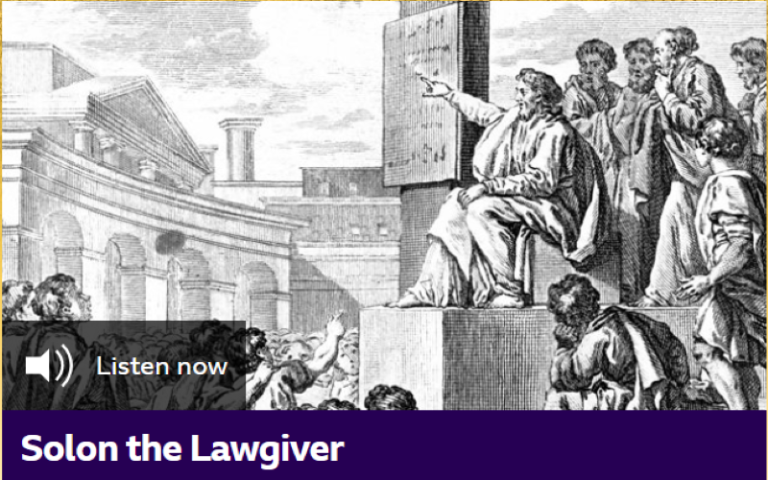UCL History's Prof Hans van Wees on BBC Radio 4 'In Our Time': 'Solon the Lawgiver'
24 March 2023

UCL History’s Professor Hans van Wees joined Melvyn Bragg, Professor Melissa Lane (Princeton) and Professor Bill Allan (Oxford) on an episode of BBC Radio 4’s In Our Time (23 March 2023). The guests discussed ‘Solon the Lawgiver’, an elected archon or chief magistrate of Athens in 594 BC seen by some as the father of Athenian democracy.
The panel began by exploring a political and economic crisis that almost sparked a civil war in Athens around 600 BCE and the ways in which violence was averted by a range of reforms enacted by the poet, politician and legislator Solon, later known as one of the ‘Seven Sages’ of Greece.
Although the main question asked about Solon was, as usual, whether he deserves to be called the founder of Athenian democracy, the panel also discussed his role in resolving an acute debt crisis which led to many Athenians and their families being exploited by their creditors as debt-slaves or even being sold abroad into fully-fledged slavery. Solon made the latter (but not the former) practice illegal and took the radical step of cancelling all current debts. His laws made penalties for most offences apart from homicide less severe, and another radical measure provided greater legal protection for those at risk of abuses of power by introducing a form of ‘public’ prosecution in front of a large jury consisting of volunteers from among the people at large.
As for Solon’s contribution to democracy, the panel had differing views. Some suggested that there was an unbroken line from Solon to classical Athenian democracy about 150 years later, and from that to modern European democracy. However, Hans was keen to emphasise the limits of Solon’s political reforms and the lack of continuity between ancient Athens and modern Europe. He commented that Solon made political office available only to those who met a high property census – much higher than most scholars have assumed – and that modern representative democracy springs from different institutional origins than the direct democracy of classical Athens. By the standards of his time, when monarchies and oligarchies were the norm, however, Solon’s politics and ideas about social justice were quite radical, and his reputation as a ‘sage’ is well-deserved.
 Close
Close


